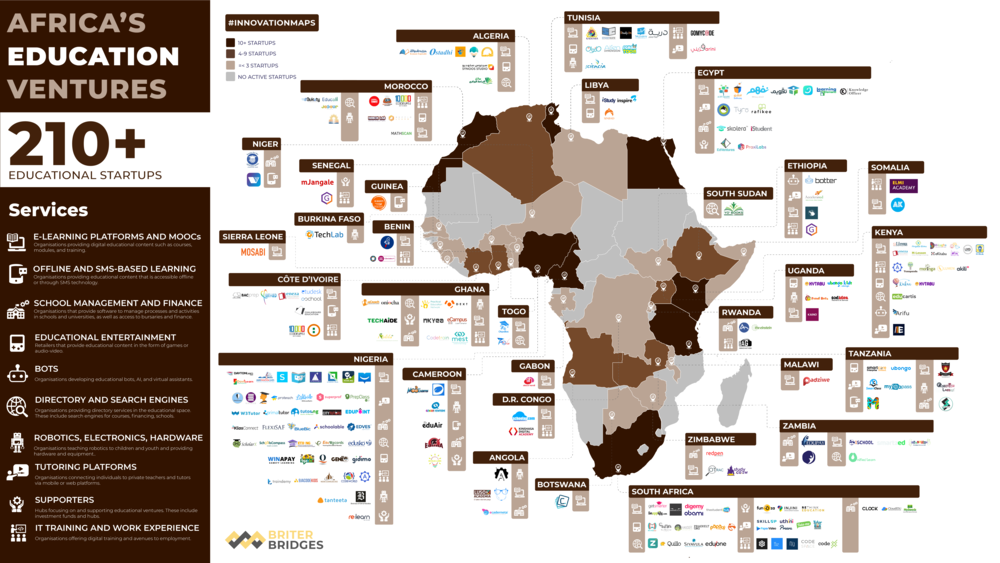Evolving technologies usually present new ways of doing things. And when this relates to leveraging technology and innovation to enhance the quality, coverage, and potential of education – edtech – it presents new methods of communicating, transferring knowledge, interacting, and cross-pollinating ideas, among others.
Interestingly, this started with schools – the age-long establishment meant to prepare students for the society. And since society is changing, it is also expected that this fundamental structure experiences its share of transformation.
A school of thought believes that edtech may be the next fintech, given the attention it is getting globally, including the proliferation of relevant innovations in Africa.
Without downplaying the level of investment that is being drawn into this industry in Asia, which is arguably the largest edtech industry globally, Africa deserves a mention as well.
A Briter Bridges report reveals that the African tech ecosystem now boasts of more than 210 edtech startups as at Q1 2020, with Nigeria taking the larger share.

Thankfully, the form an edtech solution should assume is not set in stone, and as such, there is a lot of room for innovation. But while some models are common, others are scantily adopted for reasons around regulations, investment risk factors, institutional restrictions, and addressable market, among others.
Suggested read: Here’s why tertiary institutions seem to be left out of edtech’s impact in Nigeria
Though each edtech’s concerns are similar — making learning seamless while getting outstanding outcomes — each solution remains unique in its way of imparting education.
This piece presents the different models that have been adopted for edtech solutions as noticed in the Nigeria tech ecosystem. It, however, does not represent an exhaustive list. Consequently, it will include only a few randomly selected associated startups.
Suggested read: By involving teachers, can edtech startups solve the learning problem in Nigeria?
A big umbrella – e-learning
 Barring varieties in innovation, e-learning would have been virtually all that edtech models entail. Literally, e-learning involves making use of an electronic device – a computer in whatever form it takes – to provide learning, training, or education.
Barring varieties in innovation, e-learning would have been virtually all that edtech models entail. Literally, e-learning involves making use of an electronic device – a computer in whatever form it takes – to provide learning, training, or education.
Under this category, there are models that explore massive open online courses (MOOCs) (Edutech), extended reality learning content (StanLab), gamified learning (Genii games), examination preparation (pass.ng), vocational training platform (Traindemy), skills learning (Utiva), and subject-based instructional content (uLesson), among others.
Their contents mainly come in modules, which are constantly updated, and can be accessed whenever they are needed. The knowledge transfer techniques are often a look-alike of a traditional classroom or workshop interface but offer a more personalised experience.
Suggested read: Understanding Nigeria’s digital skill development space, a discussion with Eyitayo Ogunmola
Exploring other variations
Other edtech models largely include tools that support and ensure achieving the desired learning results without necessarily involving the learners. They are mostly tools adopted as the framework which requires planning and resource allocation.
While some models outsource tutors (Tuteria), others offer school management software that mostly takes care of paper-handling responsibilities for schools, teachers, and parents (Edves), but only a few are solely focused on an essential service like how learners can fund their studies through academic grants or scholarship (ScholarX).
While edtech solutions do not appear capable of outrightly displacing traditional modes of learning anytime soon, probably due to some gaps in effective evaluation and tech enablement of the addressable market, these different models hold promises to continue to amplify outcomes in a productive way.











